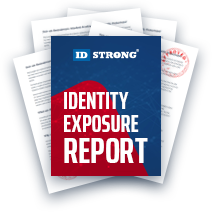How to Avoid NFT Fraud
Table of Contents
- By Alison OLeary
- Published: Jun 10, 2022
- Last Updated: Jun 15, 2022

Speculation proliferates on the internet. Everyone wants to be on the ground floor of money-making, buzz-building events. That means many people will buy something they don't understand for a price that is likely to spike – and collapse--quickly.
NFTs are an example of hot fads that have price spikes, yet few people can explain what they are or know if they'll be worth anything in the future. NFT is an abbreviation for Non-Fungible Token, literally a unique replica. Also known as crypto tokens, they are one-of-a-kind images of something that can otherwise be duplicated endlessly.z
NFTs are part of the blockchain, the traceable record of transactions memorialized in computer code (cryptocurrencies like Bitcoin are also part of the blockchain).
Cryptocurrencies are speculative investments, as no government controls or backs them, and their functions or purposes are only marginally to daily life.

The most expensive NFT to date is called The Merge, which was purchased for more than $90 million by a group of 30,000 collectors. At the same time, nearly 8,000 people reported being victims of crypto scams, losing $80 million.
NFTs have been made of:
- The first-ever post on Twitter made by its founder, Jack Dorsey, was sold as an NFT. A collector purchased it for $2.9 million, then offered it for sale for $48 million, but the highest bid was only $280.
- Several Bored Ape Yacht Club images of cartoonish animals in clothing sold for between $300,000 and $500,000 in ApeCoin. However, high interest in pre-sales of deeds for the company's Metaverse project created havoc, dragging prices of the NFTs down.
- CryptoKitties and CryptoPunks, cartoonish characters, were created as NFTs on the Ethereum blockchain in 2017, with many given away for free.
How Does it Work
Collectors interested in NFTs, which can be artwork or any other image (of a document or even a short video), buy the items with cryptocurrencies. The existence of the item, as well as the transaction itself, are recorded on the blockchain by miners around the world.
Experts claim that whether NFTs gain or lose value is purely a result of speculation. Initial interest in these items generally drives the price up, but the long-term value is difficult to calculate.
- NFT scams pop up in these situations, where there's a void of information, and prices can either be $250 or $250,000. Many NFT scams to watch out for are simply new twists on old themes, like phishing.
NFT Scams to Watch Out For
- It's essential to keep your guard up when reviewing an email from an unknown source (or even a "great deal" passed on by a known associate). Using traditional email phishing schemes, scammers who aren't finding as many victims have moved on to NFT fraud. They get names and emails of people likely to be less sophisticated about online transactions through the dark web. Phishing emails offer amazing deals on NFTs but are most likely looking to steal money or sensitive personal information.
- Watch out for spoofed websites that appear to be real NFT showrooms (check the web address carefully and compare it to others found online).
- Watch out for links to faked "airdrops" and giveaways that may allow scammers to use keyloggers to steal your password.
- Watch out for requests to send a free NFT deposit to your crypto wallet, which allows the scammer access to your crypto assets.
- Watch out for the "rug pull" technique, one in which the scammer offers a unique NFT at a significantly reduced price, only to sell a reproducible token to the buyer.
- Watch out for counterfeit NFTs. These are easy paydays for a motivated scammer.
- Always check the authenticity of the seller's account (whether on Discord or another platform) and run a reverse-image search. There are also ways to investigate an NFT's blockchain identity to verify ownership.
- Watch out for "pump and dump" schemes and fake auctions. These drive up the price of an item, only to disappear at the final moment, leaving you to pay a ridiculously inflated price for something. Also, beware of fake bidders who may change the currency they're offering at the last moment, such as switching a high-value cryptocurrency like BTC or ETH for USD, which are not equal.
The Federal Trade Commission warns consumers to be particularly skeptical of investment advisors who claim to be celebrities who can multiply your savings, who contact you out of the blue, or who you meet on online dating apps.
Ways to Protect Yourself
Buyer beware is evergreen advice. Educate yourself about EFTs before entering an auction.
Also, stick to a reasonable price limit because the item may not be worth as much a day or even an hour later.
As with all potential phishing scams, never click on a link embedded in an unfamiliar email, share a password, or take other action that reveals personal or account data to a third party.
Some NFT and crypto scams are passed along via word of mouth. Step back and consider the source of information when a friend suddenly becomes an NFT "expert" or crypto evangelist. It's not unusual for a sophisticated scam to ensnare friends and relatives, disappearing with the life savings of several close relatives or associates in one fell swoop.
It's easy to get caught up in the excitement of escalating prices and stories of people making millions of dollars on crypto investments and NFTs. These stories get a lot of attention, but they are rare compared to the number of people scammed.
Because cryptocurrencies are not linked to traditional currencies or insured by a federal organization like the FDIC, they are solely valued by supply and demand, which can change without notice. Even so-called stablecoins, TerraUSD and Luna, backed by Bitcoin and "pegged" to withstand the worst of the crypto market's usual volatility, lost virtually all of their value in mid-2022. Those who study markets and currencies called the incident an old-fashioned "bank run" of investors pulling their money from the currencies.



















































































































